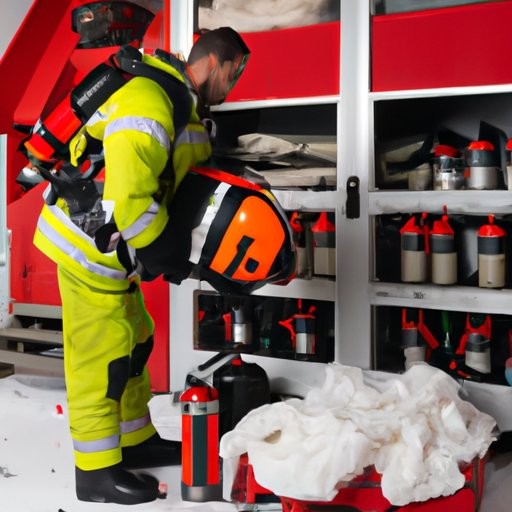Recent Blog Posts
Why Are NJ Firefighters Suing Over Foam Chemicals and What It Means for You
Firefighters in New Jersey are engaged in critical legal battles over Aqueous Film Forming Foam (AFFF), a firefighting agent linked to health risks. This foam contains PFAS (per- and polyfluoroalkyl substances), which have raised serious health concerns. These lawsuits highlight the dangers faced by firefighters and have broader implications for public health and safety in New Jersey and beyond.

What Is AFFF and Why Is It Controversial?
Understanding AFFF and Its Use
Aqueous Film Forming Foam (AFFF) is used to extinguish fires involving flammable liquids like gasoline or oil. It's widely used in military bases, airports, and fire departments due to its effectiveness. However, AFFF contains PFAS, chemicals that persist in the environment and human body, often referred to as "forever chemicals."
What You Need to Know About PFAS Explained by the US EPA
Per- and polyfluoroalkyl substances (PFAS) are increasingly recognized as a significant environmental issue in the United States due to their persistence and potential health impacts. The U.S. Environmental Protection Agency (EPA) is at the forefront, providing comprehensive information and guidance on managing PFAS concerns.

What Are PFAS and What Are Their Health Implications?
PFAS are man-made chemicals that have been used for decades in a variety of industrial and consumer products, prized for their resistance to water, grease, and stains. This includes products like non-stick cookware, water-repellent clothing, and firefighting foams. Unfortunately, their durability also means they persist in the environment, leading to widespread contamination.
How Does PFAS Research Affect You and Your Family's Health?
Per- and polyfluoroalkyl substances (PFAS) are man-made chemicals prevalent in numerous products since the 1940s. These persistent chemicals accumulate in the environment and human bodies over time. Understanding PFAS's health impacts is essential for safeguarding you and your family.

What Health Risks Are Linked to PFAS?
Exposure to PFAS is linked to various health problems. Studies show these chemicals may lead to cancer, liver damage, immune system issues, and reproductive challenges. The National Institutes of Health (NIH) highlights concerns about PFAS affecting cholesterol levels, thyroid function, and hormones. As of May 2025, ongoing research and regulations are crucial to mitigating exposure risks.
What You Need to Know About PFAS Lawsuits and Water Contamination
PFAS contamination in drinking water is a critical issue affecting communities across the United States. These chemicals, prevalent in many everyday products, have been associated with severe health risks. As of May 2025, both federal and state governments are striving to regulate PFAS levels effectively. This blog delves into the legal landscape of PFAS contamination and its implications for communities nationwide.

What Are PFAS and How Do They Affect Water?
Per- and polyfluoroalkyl substances (PFAS) are man-made chemicals used since the 1940s in items like non-stick cookware and firefighting foams. Their resistance to heat, water, and oil makes them valuable but also environmentally persistent. PFAS contamination is often found near industrial sites and military bases, prompting health concerns. The Environmental Protection Agency (EPA) is working to establish drinking water standards to mitigate potential health effects, including cancer and liver damage.
What Should You Know About the Risks of PFAS to Your Health and Environment?
Per- and polyfluoroalkyl substances (PFAS), often referred to as "forever chemicals," are a growing concern due to their persistence in the environment and potential health risks. These man-made chemicals accumulate in the environment and human bodies because they do not break down easily. Understanding the effects of PFAS exposure is crucial for safeguarding public health and the environment, particularly in states like Michigan, where contamination has been significant.

How Do PFAS Affect Your Health?
Exposure to PFAS is associated with a range of health issues. Research links these chemicals to cancer, liver damage, and immune system disruption. There are also concerns about reproductive and developmental effects in children. As of May 2025, Michigan law mandates monitoring of PFAS levels to protect residents. According to the National Institutes of Health (NIH, 2024), PFAS can disrupt hormonal functions, leading to long-term health problems.
Should You Be Concerned About PFAS in Your Firefighting Gear?
Firefighters across the United States are increasingly concerned about the presence of Per- and Polyfluoroalkyl Substances (PFAS) in their gear. These chemicals, prized for their water and stain resistance, are now under scrutiny due to potential health risks. As of May 2025, state laws continue to struggle with effective regulation of these substances.

What Are PFAS and Why Are They in Firefighting Gear?
PFAS are synthetic chemicals that have been used since the 1940s in various products, including firefighting gear, for their ability to repel water, oil, and stains. While beneficial in hazardous environments, PFAS are notorious for persisting in the environment and accumulating in the human body.
What You Need to Know About PFAS Exposure in the U.S. Population
Per- and polyfluoroalkyl substances (PFAS) are synthetic chemicals used in various products since the 1940s. Known as "forever chemicals" due to their persistence, PFAS pose significant public health and environmental risks across the United States. Understanding their impact is crucial for informed health and environmental decisions.

How Does PFAS Exposure Occur in the U.S. Population?
Environmental Contamination
PFAS contamination occurs through environmental pathways like air, soil, and water. Industrial sites, military bases, and airports are major sources due to the use of firefighting foams and manufacturing processes. These chemicals can seep into groundwater and surface water, contaminating drinking water supplies. According to the Environmental Protection Agency (EPA), millions of Americans may be exposed to PFAS through contaminated drinking water (EPA, 2024).
Are Your PFAS Levels High? What Healthcare Workers and Firefighters Face
Per- and polyfluoroalkyl substances (PFAS) are persistent chemicals used since the 1940s, earning the nickname "forever chemicals." Their presence is increasingly concerning, particularly for healthcare workers and firefighters. Understanding these risks and taking proactive measures is essential for these professionals.

What Are the Risks of PFAS Exposure for Healthcare Workers and Firefighters?
Healthcare workers may encounter PFAS in medical equipment such as surgical gowns and drapes, which are treated with these chemicals for durability. This indirect exposure can lead to elevated PFAS levels in their blood, posing significant health risks.
Is Your Firefighting Gear Safe? What You Need to Know About PFAS Risks
Firefighters are essential in protecting our communities, yet their safety is increasingly jeopardized by harmful chemicals in their gear. A major concern is the presence of Per- and Polyfluoroalkyl Substances (PFAS) in firefighting equipment. Known for their persistence in the environment and human body, these chemicals pose significant health risks. Understanding PFAS implications in firefighting gear is crucial for ensuring the safety and well-being of these vital workers.

What Are PFAS and Why Are They Used in Firefighting Gear?
PFAS are synthetic chemicals utilized in various industrial applications and consumer products since the 1940s. Their resistance to heat, water, and oil makes them ideal for firefighting gear, enhancing durability and effectiveness in extreme conditions. However, these properties also lead to environmental persistence, accumulating in soil, water, and living organisms. This raises concerns about long-term exposure and its impact on human health, especially for firefighters frequently using PFAS-treated gear.
What You Need to Know About Firefighting Foam Lawsuits in 2025
Across the United States, legal challenges related to firefighting foam, especially Aqueous Film Forming Foam (AFFF), are evolving rapidly. With heightened awareness of the health risks linked to PFAS (per- and polyfluoroalkyl substances), an increasing number of lawsuits are being filed by firefighters and communities impacted by these persistent chemicals. This article delves into the critical aspects of these lawsuits, providing a comprehensive overview of what to anticipate in 2025.

Why Are Firefighting Foam Lawsuits Increasing?
The surge in firefighting foam lawsuits stems from mounting evidence linking AFFF exposure to severe health issues. Firefighters, who have relied on AFFF for its effectiveness in extinguishing fuel fires, now face elevated risks of cancer and other health problems due to prolonged PFAS exposure. Studies show that PFAS can accumulate in the body over time, leading to conditions such as liver damage, immune system disorders, and reproductive issues (NIH, 2024).


